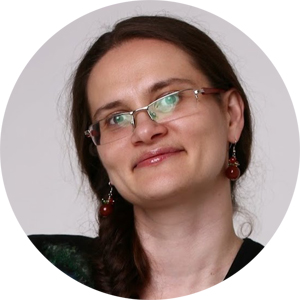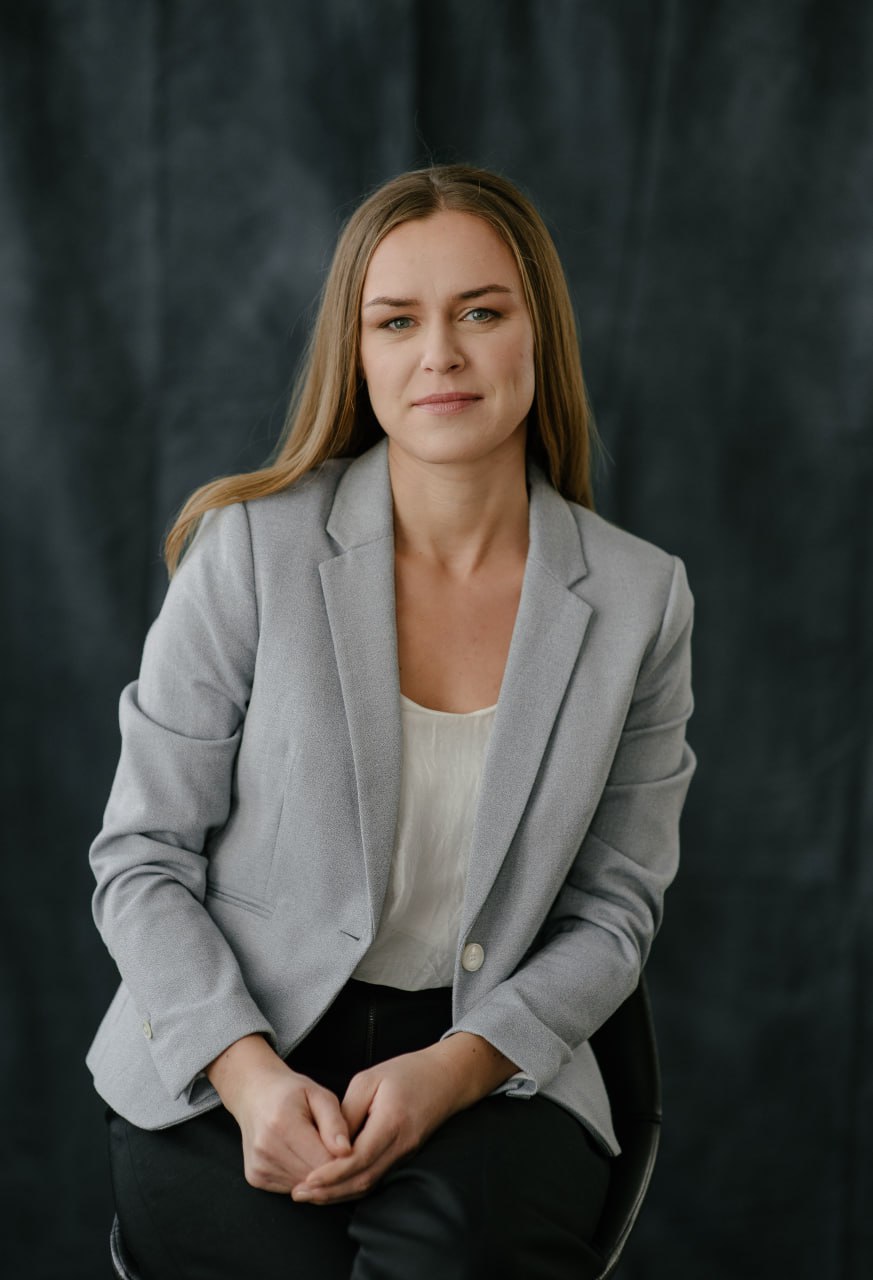Our vision at Restart Foundation is to run hundreds of programmes across Ukraine, to help the most in-need groups, such as children, parents, teachers, veterans, families of those defending the country, and more.
We picture a flourishing Ukraine where everyone has access to the tools needed for great mental health.
Our Safe Space programme supports Children, Parents and Teachers in kindergartens.
In Ukraine today, children are among the most psychologically-vulnerable groups, and are some of the most affected by the Russian invasion of their country.
Millions of Ukrainians have had their childhood defined by the events of the last years: carefree childhoods taken away; many forced to re-locate from occupied territories; fathers fighting on front-lines; friends and relatives scattered all over the globe.
These children are under constant stress and uncertainty, living in cities attacked daily by missiles and drones, spending time in air-raid shelters, seeing destruction in the streets around them. This has led to a level of stress that the immature psyche of a child is unable to cope with on its own.
To help a child psychologically deal with such extreme circumstances, they need support from specialists who can provide new, positive perspectives, and tools for understanding complex emotions, as well as a caring, supportive environment at home or school.
Under these extreme circumstances, children are dependent on adults for psychological stability. It is the adults surrounding the children – their parents, their family and their teachers – who are responsible for their physical and psychological health, and responsible for making sure they are able to grow into happy and healthy young people, whatever reality they are facing right now.
Restart Foundation is dedicated to ensuring these children have a bright future.
As a coordinated team of psychologists, supervisors, parents, teachers and partner organisations, we can provide the required support to ensure the psychological well-being of Ukrainian children.
With this goal, Restart Foundation works with the Safe Space programme.
SAFE SPACE
Safe Space is an evidence-based programme, created by Ukrainian specialists at the Mental Health Centre of Kyiv Mohyla Academy, which has been successfully implemented in the Ukrainian school system since 2015. There are two modules of this programme, one for kindergartens and one for schools.
The programme was designed to work simultaneously with children, parents and teachers, as well as any other staff in a teaching environment, in order to relieve the trauma and negative psychological impact of on-going war, on the psyche of the children.
PROGRAMME CO-CREATOR & RESTART FOUNDATION ADVISOR

Oksana Zaleska
Oksana is one of the leading child psychologists in Ukraine and works as an expert and supervisor for Restart Foundation.
She is a co-creator of the Safe Space programme, which has been used in the Ukrainian education system since 2015.
She has 28 years of experience working with children and adults who have suffered from trauma, psychosomatic disorders and behavioural problems, among others. She is a Senior Expert of the Mental Health Centre of the National University of Kyiv-Mohyla Academy – one of Ukraine’s leading universities. She works as an expert for the UNICEF Children’s Fund, and is a member of many professional organisations, including the International Association of Analytical Psychology (IAAP), the Ukrainian Group for the Development of Analytical Psychology (UGR IAAP) and the Professional Association of Children’s Analytical Psychologists (PAChAP).
Oksana is a Jungian analyst and author of the adapted version of Jung’s method “Serial Drawing” for emergency use for war-affected children.
She has a PhD in Psychology and has completed many training programmes in trauma therapies, including a certification in ASD, PTSD, Resiliency, Psychotrauma treatment methods, from the Israel Trauma Coalition.
She has authored numerous papers and given presentations and lectures, as well as working directly with schools and institutions in the conflict-zones of Ukraine, helping to prevent trauma among Ukraine’s children and educators.
SAFE SPACE PROGRAMME
The goal of the Safe Space programme is for psychologists and teachers to create a safe environment for children, to assist them in recovering psychologically from trauma, and to develop their resilience following psychotraumatic events.
Safe Space is built on scientifically-proven and internationally-recognised methodology, as well as on the creators’ practical experience of working with pre-schoolers, schoolchildren, their parents, and teachers in live war zones.
The programme covers three main components and is aimed directly at children, parents and teachers. It includes three stages of work.
Stage 1
Training of kindergarten personnel (teachers, teaching-assistants, administrators)
Observation of lessons and teaching methods
Follow-up consultations with teachers based on the results of observation and their requests
Stage 2
Introductory meeting with parents
Format: offline meeting (2 sessions x 45 minutes)
Number of participants: 12-16 people
Topics:
-The impact of stress on adults and their ability to support children
-Understanding children’s reactions to stress
-How parents can help children nurture their vitality
Program Information, Testing, and Completing the Informed Consent
Stage 3
This stage consists of 7 separate sessions, which is the practical section of the programme
Each session is a class of 45 minutes, and takes place weekly over 7 weeks
This stage is called In Safe Embrace
Number of participants in the group: 6-8 children
Parents are kept updated on topics and progress of the group
IN SAFE EMBRACE
These seven practical sessions are designed for pre-schoolers and are aimed at creating a safe space and strengthening interaction between children and parents. The trainings provide comprehensive support for the child and their family in crisis conditions.
During the course, children are psychologically restored in an atmosphere of creativity, where they play and perform interesting tasks both independently and together with their parents. The participation of adult family members is important in this programme, because for young children the role of mother and father is extremely significant – they are the basis of security and provide key needs, such as communication and physical contact. Adults receive advice on how to communicate and play with the children, as well as a list of literature and films.
Session 1. Establishing contact
The goal: to create conditions for safe work in a group by defining the principles of group interaction and common rules.
The task: to introduce the members of the group and create a sense of uniqueness in each child; to form communication and joint game skills, as well as self-presentation skills; to teach children to interact during communication.
Session 2. Getting to know feelings
Purpose: to acquaint children with emotions, their origins and their roles in life.
The task: to teach children to distinguish between different emotions, to name them by creating an atmosphere of acceptance and trust in the group; discuss the sources of feelings; to create a safe space for the free expression of various emotions.
Session 3. Learning to manage reactions (session for parents, 1.5 hours)
Purpose: to establish an active position of parents regarding the process of emotional development of the child.
The task: to familiarize parents with the basic concepts of stress and the child’s reactions to stress; inform about the development of the child’s emotional sphere and the role of parents in this process;
to give information about the connection between children’s behaviour and needs and feelings;
to form a positive attitude towards children’s play.
Session 4. Learning to manage reactions. Fear
The goal: to teach children to be aware of their feelings and safely express them in situations of “normal reactions to abnormal events.”
The task: to teach children to assess fear and manage it, to change their attitude towards it;
increase the feeling of strength and pleasure in the body.
Session 5. Learning to manage reactions. Bad memories
Purpose: to develop self-regulation, games for directed imagination and imagination skills.
The task: to introduce directed imagination, as well as the concept of a safe place;
teach them how to manage bad memories;
form an understanding that thoughts affect our emotions.
Session 6. Learning to manage reactions. Anger
Purpose: to develop self-regulation skills, anger management.
The task: to familiarize them with methods of safe expression of aggressive feelings;
teach them to understand that aggression can be useful.
Session 7. Strengthening the role of social contacts and positive activities (joint lesson with parents)
The goal: to help the family in strengthening family ties and involvement in positive actions, in planning activities that would bring pleasure and regain a sense of control over life.
The task: to strengthen the bond between parents and child;
involve them in planning of positive events;
help improve mood, restore a sense of physical and emotional comfort, a sense of control over life.
Observations and consultations of teachers during the program are available upon request.
OUR SPECIALISTS

Olena Tkachenko
Olena Tkachenko is an experienced child psychologist who trained under the supervision of Oksana Zaleska.
She has a Masters degree in Practical Psychology from the Grinchenko Institute of Kyiv, as well as completing several courses in child psychology.
Since 2011, Olena has worked in different kindergartens in Kyiv as a psychologist, combining this with other roles including teacher, administrator and course manager.
She has completed many seminars around early development and child psychology, including play techniques, art therapy and development stages.
With over 12 years of experience working in Kyiv kindergartens, Olena was happy to join the Restart Foundation team as their first psychologist, leading their pilot program from March 2023.
Olena ran the Safe Space programme in the Happy Point kindergarten for 5 months, working with children, teachers and parents who had endured over a year of constant air raids and drone attacks on their city.
The Happy Point kindergarten decided to recruit a permanent psychologist following the positive results of Olena’s work, and Olena now acts as supervisor to this psychologist.

Yevheniia Zavorotynska
Yevheniia Zavorotynska is a mentor for the “Safe Space” programme and a psychologist at Restart Foundation.
Yevheniia is an analytically oriented psychologist who works individually with children, families, and adults, both in Kyiv and online. She is an active participant, as a psychologist, in projects run by the Psychosocial Rehabilitation Centre of the Kyiv-Mohyla Academy in Kyiv and Vorzel. This includes the “Serial Drawing” programme, which enables children to receive necessary psychological support amidst the war.
Yevheniia holds a Bachelor’s degree in Psychology from the Ukrainian State University named after Mykhailo Drahomanov. She furthered her knowledge in psychology by completing two long-term training programmes in child and adult analytical psychology with the Ukrainian Group for the Development of Analytical Psychology (UGR IAAP).
She is a member of the professional organisation, the Ukrainian Group for the Development of Analytical Psychology (UGR IAAP), and participates in mental health conferences as both a speaker and an appreciative attendee. She also works as a psychologist, supervisor, and trainer for the Caritas Ukraine foundation.
Before embarking on her path in psychology, Yevheniia obtained a Master’s degree in Law from the Vadym Hetman Kyiv National Economic University and worked as a legal adviser in a legal department.
In her free time, Yevheniia enjoys cooking, walking her dog, and visiting art exhibitions and galleries.


